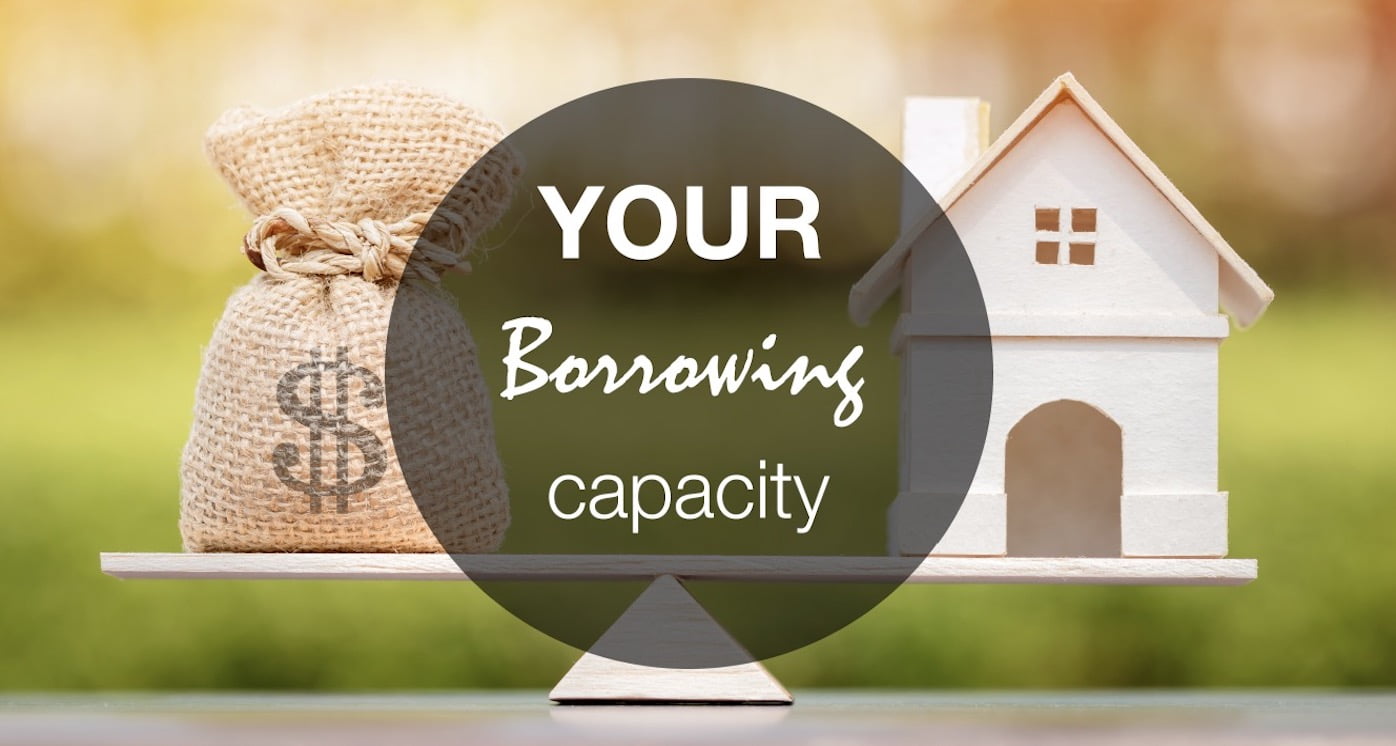Your borrowing capacity is, simply put, the amount of money a lender will loan to you.
Your borrowing capacity is calculated based on your income, current assets your deposit amount, existing debts you may have and your credit history along with many other factors.
Borrowing capacity is calculated by lenders and based on their assessment rate, allowing them to assess whether your current financial circumstances will allow you to service your mortgage over the specified loan period. Most lenders will have some sort of borrowing capacity calculator online however be aware that these only give you a rough estimate of how much you can borrow, you should really speak with your mortgage broker to obtain more accurate advice.
The amount you may be able to borrow is determined by your current financial situation. This is largely made up of your income, your financial commitments, current savings, and your credit history.
You will also need to consider your living expenses/spending habits and your existing financial commitments such as personal or car loans, credit card debts and current mortgages.
Determining your borrowing power is usually the first step in the home loan journey. A high borrowing capacity provides you with a greater number of options when buying a home. If your borrowing capacity is not as high as you wish, there are some ways in which you could increase your borrowing capacity.
You should never stretch your budget beyond what you can realistically afford, however below are a few suggestions on how you may be able to increase your borrowing capacity.
- Save a bigger deposit – in most cases, you will require a deposit amount of 10% of the purchase price saved. Obviously speaking, the larger your deposit, the larger the potential loan amount.
- Reduce your spending – it goes without saying that every dollar not spent, is a dollar saved. Before entering the home loan journey, it is a good idea to sort through you spending habits to see what can be reduced or eliminated.
- Cancel/reduce smaller debts such as credit cards, personal loans, car finance, etc. These liabilities will affect your borrowing power negatively.
- Check your capacity with several lenders – different lenders will lend different amounts; they are not all the same.
- Talk to a mortgage broker – One of the main advantages of an experienced broker is that they can help you find the best lender and loan product for you. A broker will be able to guide in with ways to increase your current financial position and help you achieve your financial goals.






Connect with Us